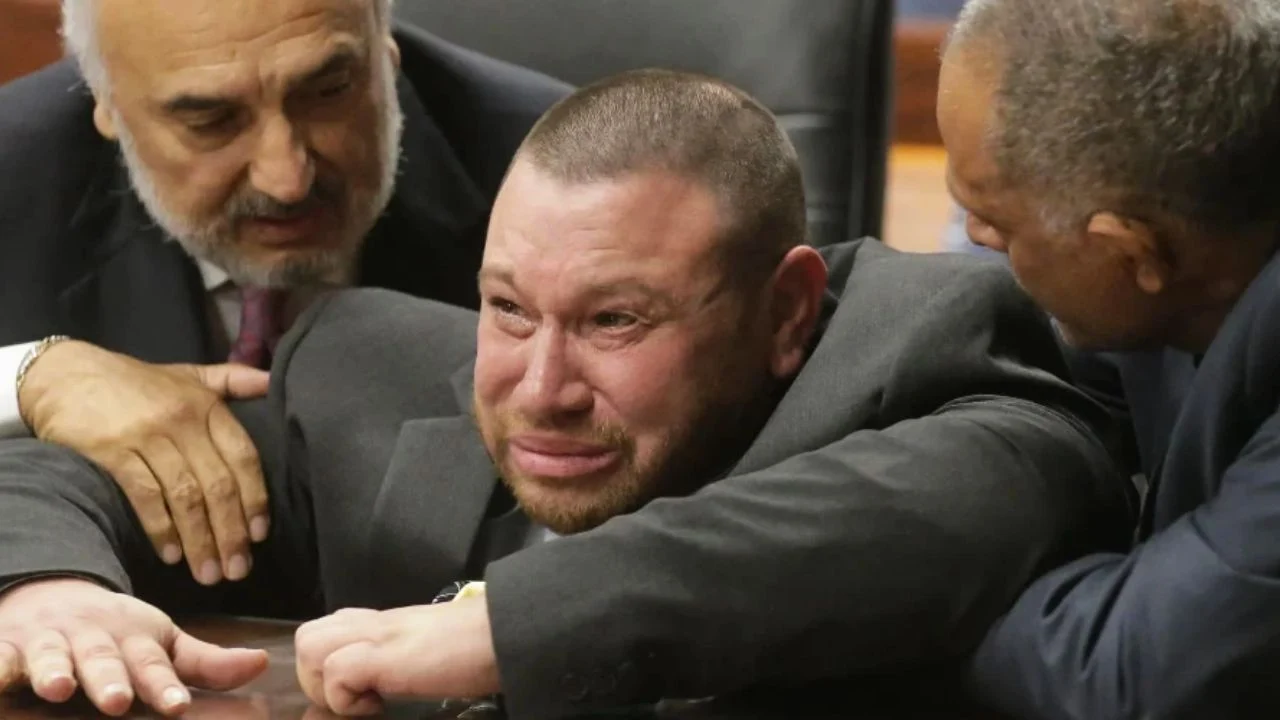On April 10, 1993, two teenagers 17-year-old Armando “Mando” Lazo and 18-year-old Bobby England were shot and killed while walking home from a house party in northeast El Paso, Texas. The drive-by attack stunned the city. Investigators faced public pressure to solve the case quickly.
Just 11 days later, police arrested 16-year-old Daniel Villegas. The arrest was based largely on a tip from his cousin, who later testified that police had threatened to charge him unless he named a suspect.
That same night, Detective Alfonso Marquez interrogated Villegas alone at police headquarters. Villegas later stated under oath that Marquez threatened to take him to the desert and beat him, and warned he’d be sent to the county jail, where he would be raped if he didn’t confess. Around 1 a.m., Villegas signed a confession claiming responsibility for the murders.
Hours later, he told a social worker the confession wasn’t true.
Nevertheless, prosecutors charged Villegas with capital murder and based their entire case on the statement. There was no physical evidence, no weapon, no DNA, and no eyewitnesses linking him to the crime.

His first trial in 1994 ended with a hung jury. His second, in 1995, ended with a conviction. At age 18, Villegas was sentenced to life in prison.
He spent the next 18 years incarcerated, maintaining his innocence.
In 2007, Villegas filed a writ of habeas corpus. His new legal team, which included attorneys from Northwestern University’s Center on Wrongful Convictions, amended the petition to include a claim of actual innocence. They presented new witnesses, including one who testified another individual had confessed to the killings.
In 2011, 41st District Judge Sam Medrano held an evidentiary hearing. In 2012, he ruled the confession was coerced and unreliable, and found that Villegas had received ineffective assistance of counsel in his original trial. The Texas Court of Criminal Appeals upheld that decision.
Villegas was released on bond in 2014, after 18 years in prison. At the time, Judge Medrano wrote in his findings that the confession “bore signs of coercion” and “was not corroborated by any physical evidence or credible witness testimony.”
Despite this, El Paso District Attorney Jaime Esparza decided to retry the case. The confession was now inadmissible, but the state moved forward. Prosecutors again presented no murder weapon, no DNA, and no eyewitnesses.
In 2018, before the third trial began, prosecutors offered Villegas an Alford plea a deal that would allow him to go free while technically pleading guilty. Villegas refused.
At trial, the defense argued the original confession had been false and pointed to alternative suspects. Prosecutors relied largely on the memory of a decades-old case.
On October 5, 2018, the jury returned a verdict: not guilty.
According to courtroom observers and media coverage, Villegas cried and dropped to his knees. The courtroom erupted in applause. His exoneration quickly became one of the most prominent wrongful conviction cases in El Paso history.
John Mimbela, a local businessman who married into Villegas’s extended family, had spent over $500,000 supporting the legal effort. “It shouldn’t take this amount of money to get justice,” Mimbela said at the time.
Following his acquittal, Villegas began speaking publicly about wrongful convictions. He described waking up at night knocking on walls, thinking he was still in prison. Though exonerated, he said his past continues to affect him including on job applications and school visits for his children.
He currently works for the Christina Montes Law Firm and has participated in legal education panels. At a 2021 event on false confessions hosted by the Innocence Project of Texas, he said, “In my mind, I was going to die in prison.”
In 2022, the Texas Comptroller’s Office approved a $1.75 million compensation under the Timothy Cole Compensation Act, which provides restitution to individuals who have been wrongfully imprisoned. The state also confirmed Villegas is eligible for monthly annuity payments and educational benefits.
Villegas also filed a federal civil rights lawsuit in 2015 against the City of El Paso and several police officials, alleging violations during his 1993 interrogation and prosecution. The lawsuit has been delayed multiple times and is still pending.

In July 2024, Villegas was arrested on a misdemeanor family violence charge. According to the El Paso Police Department, officers responded to a call from a woman who alleged that Villegas grabbed her wrists during an argument. She sustained minor injuries, according to the criminal complaint. Villegas posted a $2,500 bond and was released the same day.
His attorney, Joe Spencer, denied the allegation and called the arrest “political,” adding that Villegas was the one who was assaulted. “He’s under a lot of stress. So many people are trying to take advantage of him,” Spencer told reporters.
Villegas has also spoken out against Assistant District Attorney James Montoya, who prosecuted the 2018 trial and is now running for El Paso County District Attorney. Montoya continues to state publicly that he believes Villegas is guilty. State Rep. Joe Moody and others have criticized Montoya’s stance.
As of 2025, Daniel Villegas is one of only eight people formally exonerated in El Paso County since 1990.
“We need to focus more on people before they go to trial and get convicted,” Villegas said during a University of Texas at El Paso forum. “Because once you get convicted and are in prison, you come out, and you’re never the same.”

